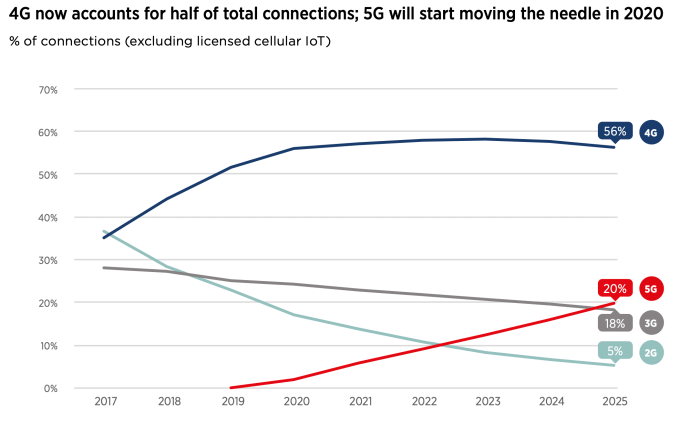South Korean operators to invest $3.365B (4T W) in 5G network infrastructure-1st half 2020
South Korea’s Ministry of Science and ICT announced on Friday that the country’s three main network operators SK Telecom, KT and LG Uplus have agreed to invest KRW 4 trillion in their 5G networks in the first half of 2020, The Korea Times reports.
Investments will cover the cost of the installation of additional equipment to enhance 5G service coverage. The agreement was reached on 5 March, during a video conference call between Minister of Science and ICT Choi Ki-young, and SK Telecom CEO Park Jung-ho, KT CEO Koo Hyun-mo, and LG Uplus CEO Ha Hyun-hwoi.

LG Uplus worker installs a 5G base station in Seoul in this Feb. 12 photo. Korea Times file
……………………………………………………………………………………………………………………………………………………………………
The initial investment had been set at KRW 2.7 trillion, but has now been expanded to KRW 4 trillion. The additional investment will be used to deploy 5G infrastructure in subways, railroads, department stores and universities.
South Korea ended January with 92,000 5G base stations installed nationwide.
“For every one LTE base station, there needs to be around four 5G base stations for there to be similar coverage. Coverage also depends on the environment and location,” said an unnamed representative of one of the three South Korean mobile operators.
Many industry experts say the 5G market will continue to grow in the coming months and at its current pace could reach over 11 million subscribers this year, although there were only around 4.95 million as of the end of January.
Market watchers believe diverse services such as cloud gaming and augmented reality will be launched in the first half of the year alongside new 5G-enabled smartphones throughout the year. They say this will contribute to the growth in the industry.
…………………………………………………………………………………………………………………………………………………………………
South Korea ended 2019 with 5 million 5G subscribers. SK Telecom, KT and LG Uplus commercially launched fully-fledged 5G mobile networks on 3 April 2019. In August last year, SK Telecom led South Korea’s 5G market with 84 million subscribers, followed by KT with 630,000 and LG Uplus with 540,000. KT passed 1 million 5G customers on 21 September 2019, less than six months since launching the service.
In January, SK Telecom, KT and LG Uplus collaborated to provide 5G services on subways in major South Korean cities. The three operators completed the deployment of 5G infrastructure on the subway system in Gwangju, 330 kilometers southwest of Seoul. The operators plan to install 5G networks for subways and metro stations in major cities, including Daegu, Daejeon and Busan, in the first quarter of this year.
…………………………………………………………………………………………………….
From a GSMA report: 2020 Mobile Economy
In general, consumers in South Korea and China – having witnessed some of the earliest launches – appear to be the most excited by the prospect of upgrading to 5G, while those in the US, Europe and Japan seem more content with 4G for the time being,” the GSMA adds, before striking an upbeat note: “5G is still in its infancy though; as more tangible use cases are deployed, more consumers will appreciate the benefits of 5G.
………………………………………………………………………………………
References:
https://www.koreatimes.co.kr/www/tech/2020/03/133_285715.html
5 thoughts on “South Korean operators to invest $3.365B (4T W) in 5G network infrastructure-1st half 2020”
Comments are closed.




SK Telecom successfully tested and used a 5G standalone (SA) terminal, base station, and network core earlier in the summer of 2019.
The successful data transmission on a pure 5G network was initiated with base stations and core equipment from Ericsson and terminals from Qualcomm, according to SK Telecom . The operator is no stranger to early adoption — it previously laid claim to the world’s first commercially available standards-based mobile 5G network in December 2018.
Like all currently available mobile 5G networks, SK Telecom’s operates on the non-standalone (NSA) core, which means the operator relies on a 4G LTE network core to support both generations of cellular technology. The operator says it plans to commercialize its 5G SA infrastructure in the first half of 2020, along with other new capabilities such as network slicing and mobile edge computing (MEC).
SK Telecom isn’t the only operator advancing to a 5G SA core, but it is among the earliest and most advanced to date. During the last few months, T-Mobile US completed a 5G SA data session using equipment from multiple vendors; Ericsson readied 5G New Radio (NR) software that operators will need to deploy a pure 5G network; and Qualcomm and Ericsson initiated a 5G SA data connection test. Huawei, Nokia, ZTE, and other vendors and operators are also completing trials and moving toward 5G SA deployments.
https://www.sdxcentral.com/articles/news/sk-telecom-boasts-5g-standalone-first-in-south-korea/2019/09/
$3.365T (4T W) seems $3.365Bn (4T W) , right?
You are correct. I fixed the typo in the Title. Currency converter for 4T Korean Won to US $: https://www.xe.com/currencyconverter/convert/?Amount=4%2C000%2C000%2C000%2C000&From=KRW&To=USD
Thanks
Alan
Korean network operators massive spending on their 5G networks is a really interesting development. I wonder what impact it will have on 5G subscriber growth. Thanks for sharing!
On 23 March 2020, SK Telecom announced that it will provide Geovision, a big data-based real-time floating population analysis service, to Gyeongbuk Provincial Police Agency, free of charge, until the Korean government declares the end of the coronavirus (COVID-19).
The collaboration between SK Telecom and the police agency comes as a result of their joint efforts to contain the spread of coronavirus. SK Telecom has been providing Geovision since March 9, 2020 to Gyeongsan Police Station within the Gyeongbuk Province and will begin providing the service to all police stations in the Gyeongbuk Province today. Moreover, the company is currently in discussions with the Korean National Police Agency to expand the use of Geovision to all police stations across the nation.
Geovision is a powerful big data and spatial data analysis service. By analyzing communication data generated between mobile phones and base stations on a real time basis, it offers accurate location-based services and is thus being widely used in areas including trade area analysis and demographic statistics.